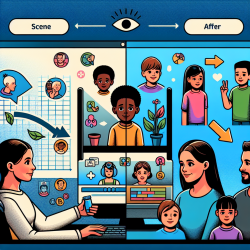In an era where healthcare is increasingly digital and interconnected, the Cross-Provincial Practice (CPP) agreement is a game-changer for speech-language pathologists (SLPs) and audiologists (AUDs). This agreement allows these professionals to provide limited care across provincial boundaries, enhancing access to crucial services for clients and patients. But what exactly does this entail? Let's dive into the essentials of the Cross-Provincial Practice Guide released on July 4, 2022.
What is Cross-Provincial Practice (CPP)?
CPP is an agreement between several provinces that permits SLPs and AUDs to offer a limited amount of care across provincial lines. The goal is to make healthcare more accessible and efficient for clients and patients. The agreement, known as a Memorandum of Understanding, allows professionals who hold a full practicing license in one participating province (the primary province) to apply for CPP registration in another participating province (the secondary province).
Key Benefits of CPP Registration
- Allows up to 200 hours of direct client/patient care in the secondary province over a 12-month period.
- Facilitates faster and more cost-effective registration compared to full registration.
- Care can be delivered both in-person and virtually.
Participating Provinces
As of now, the following provinces are part of the CPP agreement:
- Alberta
- Manitoba
- New Brunswick
- Ontario
- Saskatchewan
More provinces are expected to join, so always check with your primary province for the latest updates.
Why Aren’t All Provinces Participating?
Each province has its own governing legislation and by-laws, which can make participation challenging. Some provinces may need to amend their laws, a process that can take time. Others may never be able to make the necessary changes.
Application Process
To apply for CPP registration, you must:
- Request your primary province's regulator to send a "Verification of Registration – Cross Provincial Practice" form to the secondary province.
- Complete an application form for the secondary province.
- Pay all applicable fees in the secondary province.
- Ensure you are a fully practicing registrant in your primary province.
Note that each province may have additional requirements such as police checks and varying fees.
Tracking Client/Patient Hours
You are required to track all direct client/patient care hours, whether provided virtually or in-person. Use 15-minute increments for recording your time. Ensure that the total hours do not exceed 200 in the secondary province.
Urgent Care Across Provinces
You do not need a CPP registration to provide brief, urgent care (up to 3 hours per year) to an existing client/patient temporarily in another participating province. This provision is particularly useful for short-term needs such as hearing aid adjustments or fluency interventions.
Definitions
- Cross Provincial Practice: Services provided by a registrant in their primary province to a client/patient in a secondary province.
- Direct Client/Patient Services: Includes screening, assessment, treatment, counseling, or consultation.
- Primary Province: The province where the registrant holds their main registration.
- Secondary Province: The province where the registrant seeks CPP registration.
- Virtual Care: Technology-enabled services provided to clients/patients in a different location.
For more information, please follow this link.










